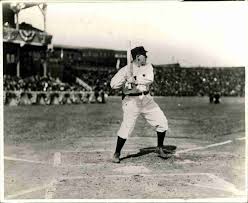Fantasy Baseball & Sabermetrics: How To Use ISO To Win Your League
SABR recognized this and created a complementary stat to Slugging Percentage which did not account for singles. The formula they came up with was:
ISO = (2B + 2*3B + 3*HR)/AB
For all of you math nerds out there who passed Algebra II… you may notice that the formula for ISO is Slugging percentage minus Batting Average. The best power hitters in the game will have an ISO around .300 and anyone with an ISO over .200 is hitting for power at a good clip. An ISO below .200 indicates that a vast majority of the players hits are not going for extra bases.
When looking at the league leaders in ISO we find a who's who of the big bats in baseball. This year, its no surprise that
Jose Batista is lapping the field with a .336 ISO. Trailing Batista is Adam Dunn at .300 and Miguel Cabrera at .290. This isn't very surprising and isn't very helpful, but that's because we're looking at the league leaders. We need to dig a little deeper and find some interesting players.For example, tied with
Ryan Howard and Mark Teixeira with a .236 ISO is… Colby Rasmus. Now we've known that Rasmus can hit for power, but it's surprising that he hits at a comparable rate as Howard and Teixeira? If you talk to Fantasy "Experts", they might throw Rasmus' name around in potential 20/20 guys, but it is becoming more and more evident that Rasmus is going to have the power to hit 30 and even 40 Home Runs. Rasmus just turned 24 this month and only has 19 Home Runs this year, but going into next year, make a note that he has tremendous upside power.On the flip side of ISO, take a look at Jorge Cantu. He slots into the middle line-up because he's supposed to have a big bat. If you were standing next to him, you'd expect him to be a power hitter (he looks the part). But if you take a look at his ISO, and talk to his owners, he just doesn't have the power you think he does. He's posting a .138 ISO this year and a career .173 ISO. Sure he can drive in some runs and have nice stretches like he did this spring, but Cantu doesn't hit for as much power as advertised. Even in 2008 when he hit 28 HR and drove in 95, he still only posted a .204 ISO.
In the end, the stat is the end all/be all. There is always room for argument. But when you're searching for value out there, ISO is a good reason to bump a player up or knock them down a bit. Someone like Rasmus has more value than his standard stats may suggest and that's what we're looking for when evaluating fantasy value… a little stat like ISO could direct you towards a championship.
Written by James Weston for theFantasyFix.com. When James isn’t spittin’ statistics down on paper he’s hacking away at Fantasy apps at
http://valuetownfantasy.com You can also find him on Twitter @TheRealJamesAFollow us on twitter @TheFantasyFix
Tags: The Fantasy Fix, Fantasy Baseball Advice, Fantasy Baseball Blog, Fantasy Sports Blog, ISO, Slugging Percentage, Adam Dunn, Colby Rasmus, Jose Bautista, Mark Teixeira, Ryan Howard, Miguel Cabrera





